Kazna Asker: the radical designer putting protest first

As the British-Yemeni designer prepares to show her latest collection at London Fashion Week, THE FACE heads to her hometown of Sheffield to discuss culture, community and spreading a message through clothes.
Style
Words: TJ Sidhu
Photography: Simon Wheatley
In the storied history of Central Saint Martins’ MA fashion show, a hijab had never featured on the runway. That is until Kazna Asker, a British-Yemeni designer, became one of 32 students to show their final collection during London Fashion Week in February 2022.
Two years later, and Kazna is gearing up for her latest showing at London Fashion Week, a presentation titled What Are We Fighting For? Like all of her work so far, it is radically political, questioning what we, as individuals and as a society, can do in the name of the good fight.
In December 2023, THE FACE received an email from photographer Simon Wheatley, the man behind some of the most memorable photographs of London’s grime scene. He told us about an “inspiring young woman” named Kazna Asker, who he’d like to shoot. We took a look at her MA collection, and then came across a video of her in Sheffield’s Town Hall, passionately addressing the city’s race equality commission. We saw her protesting for Palestine, asking her followers to “stand up for justice”. She was even invited on BBC News to talk about a film she made, Fight For Me, Sheffield, where she proudly chatted about her beloved home town. Naturally, we had to meet her.
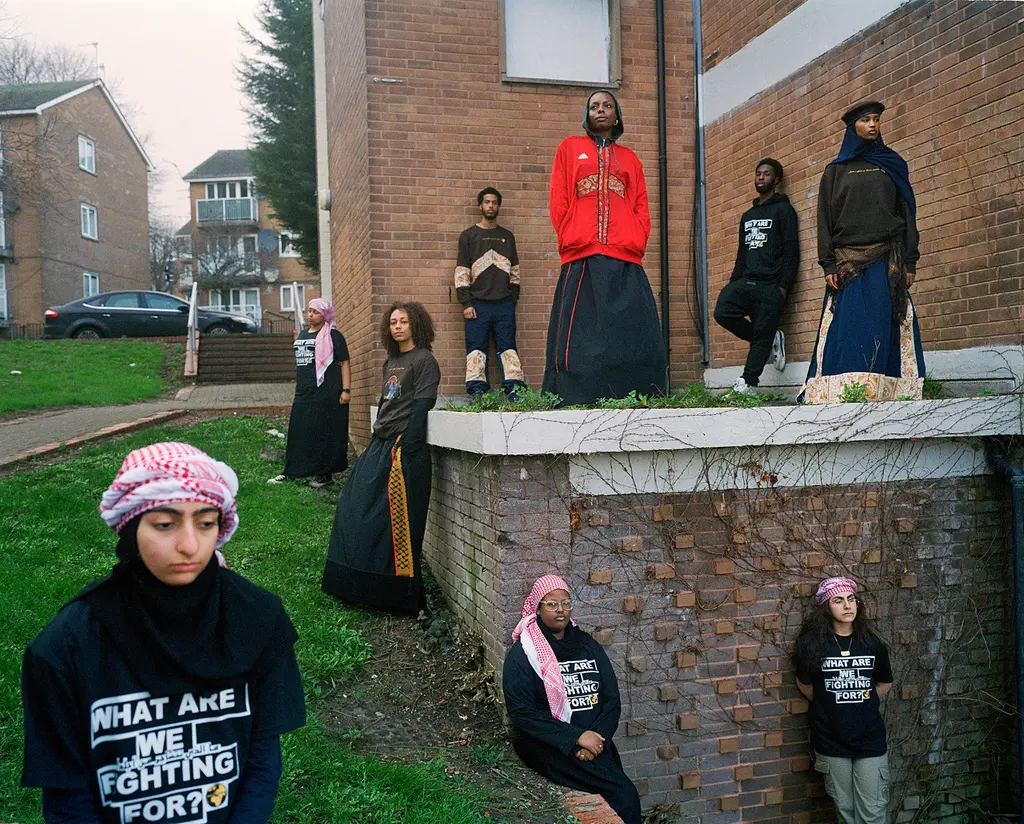
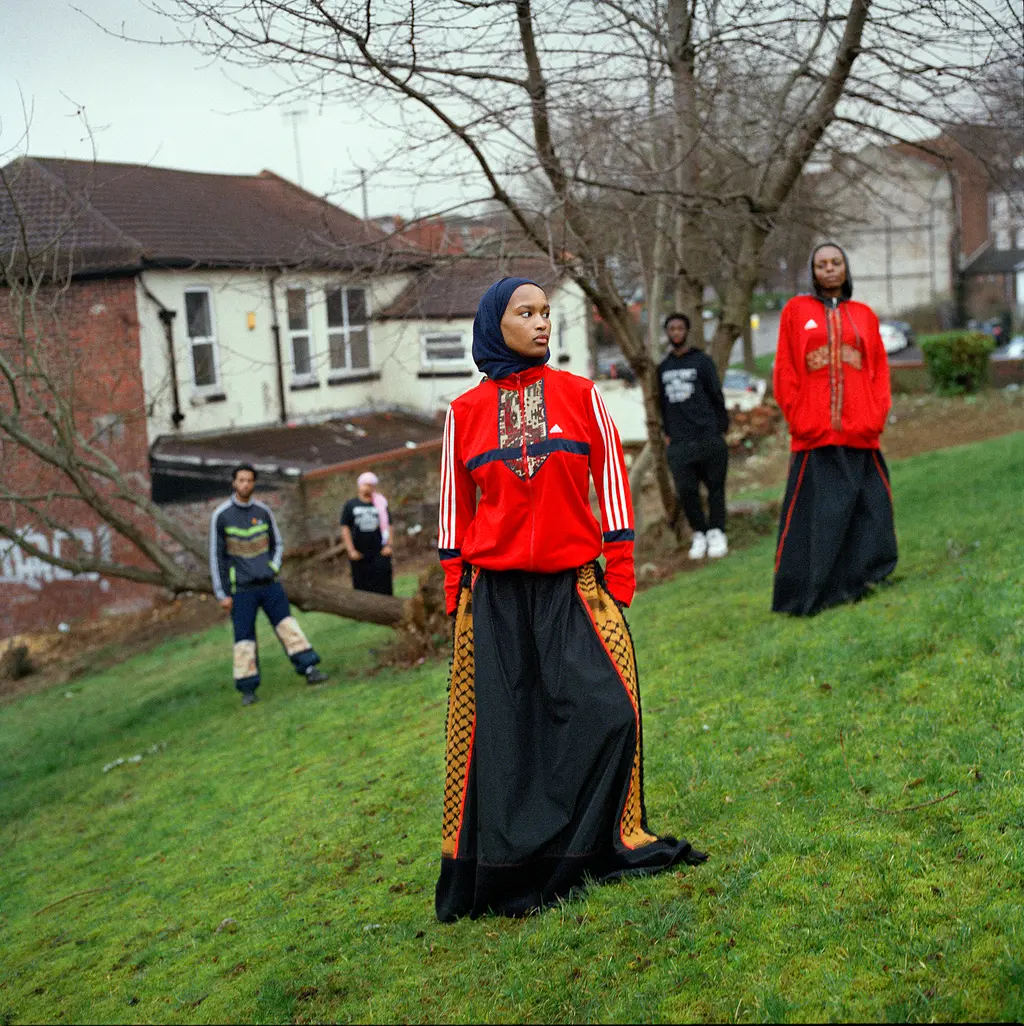
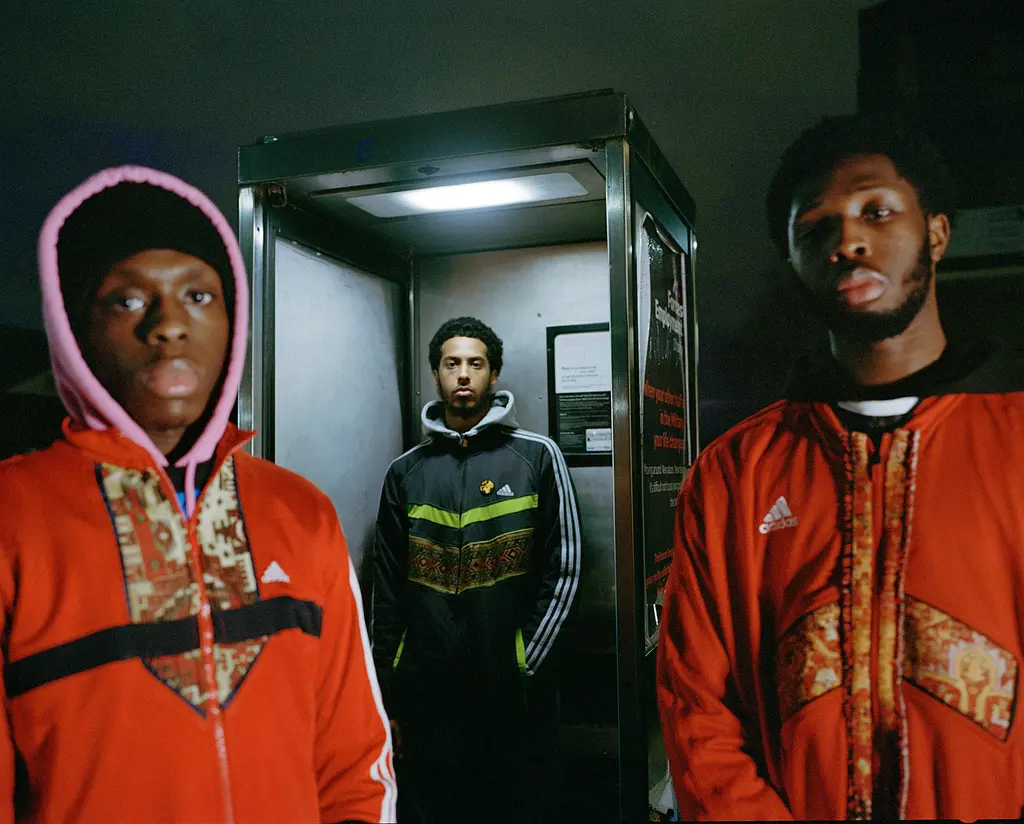
I’m sitting in the corner of a busy Sheffield cafe, as the city’s university undergrads stream in and out. After around 15 minutes, Kazna, 27, arrives hurriedly through the door with her younger sister, Halima, and two large suitcases.
“Hello, sorry I’m late!” she says, wearing baggy, light-blue jeans and a North Face fleece. A printed bandana is tied around her hair, and large gold hoops hang from her ears.
Kazna’s MA collection was titled Watered By One Water – a love letter to Sheffield, to the Yemeni aunties who helped raise her, to the cousins who lived down the road, and to her grandmother and tight-knit group of friends.
At first glance, the collection may seem like traditional Islamic attire, with thobes, abayas, hijabs, jilbabs and chadors making up the silhouettes. But look a little closer, and you’ll find details of a very British tracksuit: waterproof nylon fabrics, vibrant piping, adjustable hoods and full-length zips.
“I wanted to combine British northern culture and the streetwear I grew up around, with my Yemeni heritage,” Kazna says, taking a second to order a latte for herself, and a hot chocolate for her sister. “I would see my grandma in a traditional abaya and a hijab, and then my cousin would be next to her wearing a Nike tracksuit.”
The tracksuit has long been a part of the young Brit uniform: a symbol of comfort, concealment and ease. Over the years, the likes of Saul Nash, Nasir Mazhar, Caitlin Price and Martine Rose have found new ways to subvert it on London’s catwalks, bringing in styles from dancefloors, questioning identity politics and bending the rules of traditional menswear. Kazna’s collection, meanwhile, provides an intergenerational perspective, as a young Yemeni woman growing up in Sheffield.
“In [my grandma’s] living room, she had the colourful carpets and traditional fabric sofas, and then my brother and all the guys would be sitting on them in puffer jackets,” she says. “I wanted to combine how my grandma views her culture versus how I view the culture, combining the tracksuits with the Islamic modesty.”
There couldn’t be a better time for Kazna’s collection, with Britain’s cultural divide splitting further by the day. Since the conflict in Gaza, Islamophobia has risen sharply in the UK. Last year, Tell Mama UK – a national project which records and measures anti-Muslim incidents – reported a 600 per cent rise in Islamophobic incidents, including verbal and physical abuse.
For Kazna, the problem is ignorance: “I heard a comment when I was designing for hijabi women, like, ‘Oh, they’re oppressed by the guys in their community,’” she says, about a student in the Central Saint Martins design studio, letting out a laugh. “I was like, ‘No, no, it’s the opposite! We’re like brothers and sisters, we really look up to each other.’ I felt like the person really couldn’t understand.”
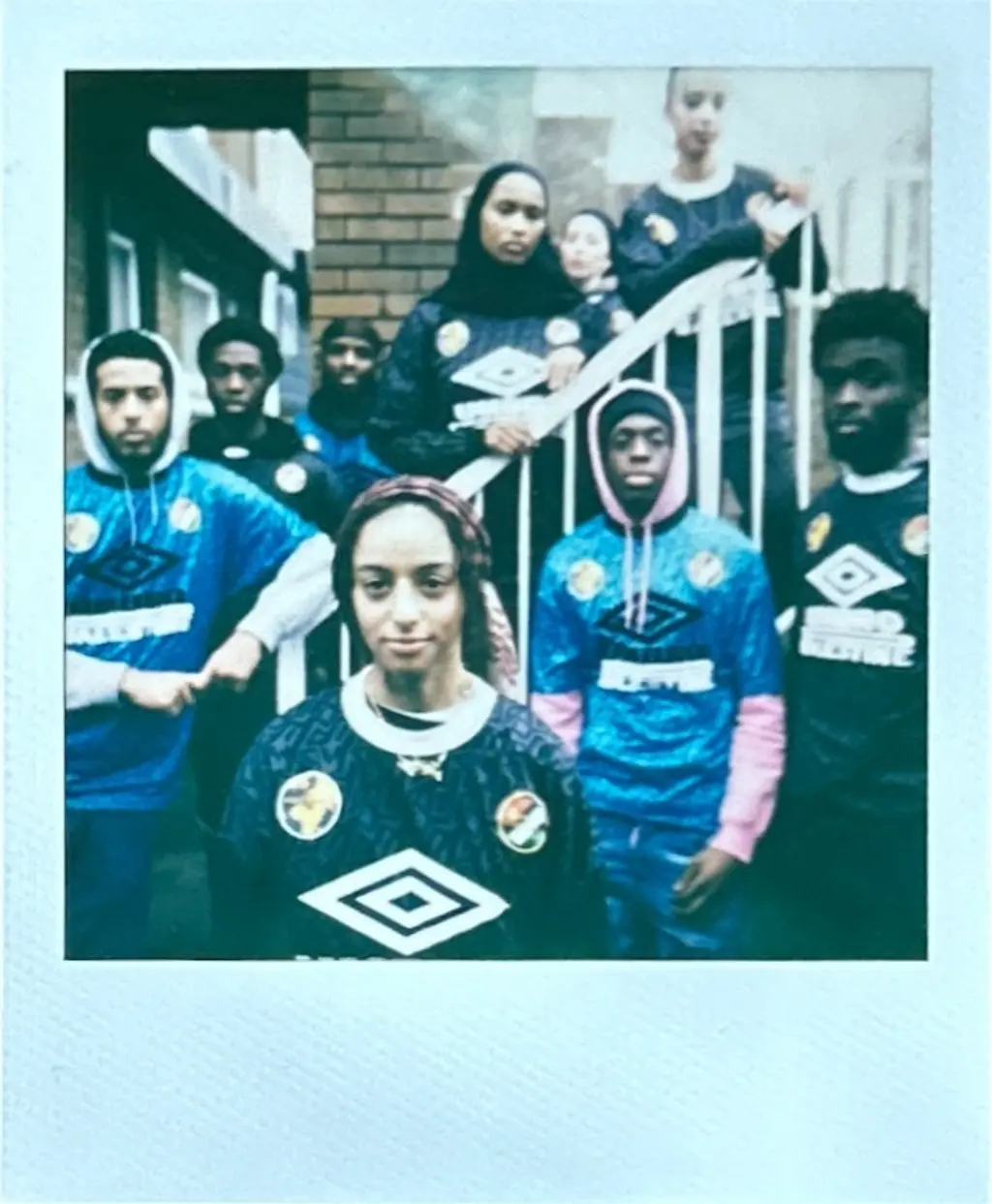
Kazna and friends.
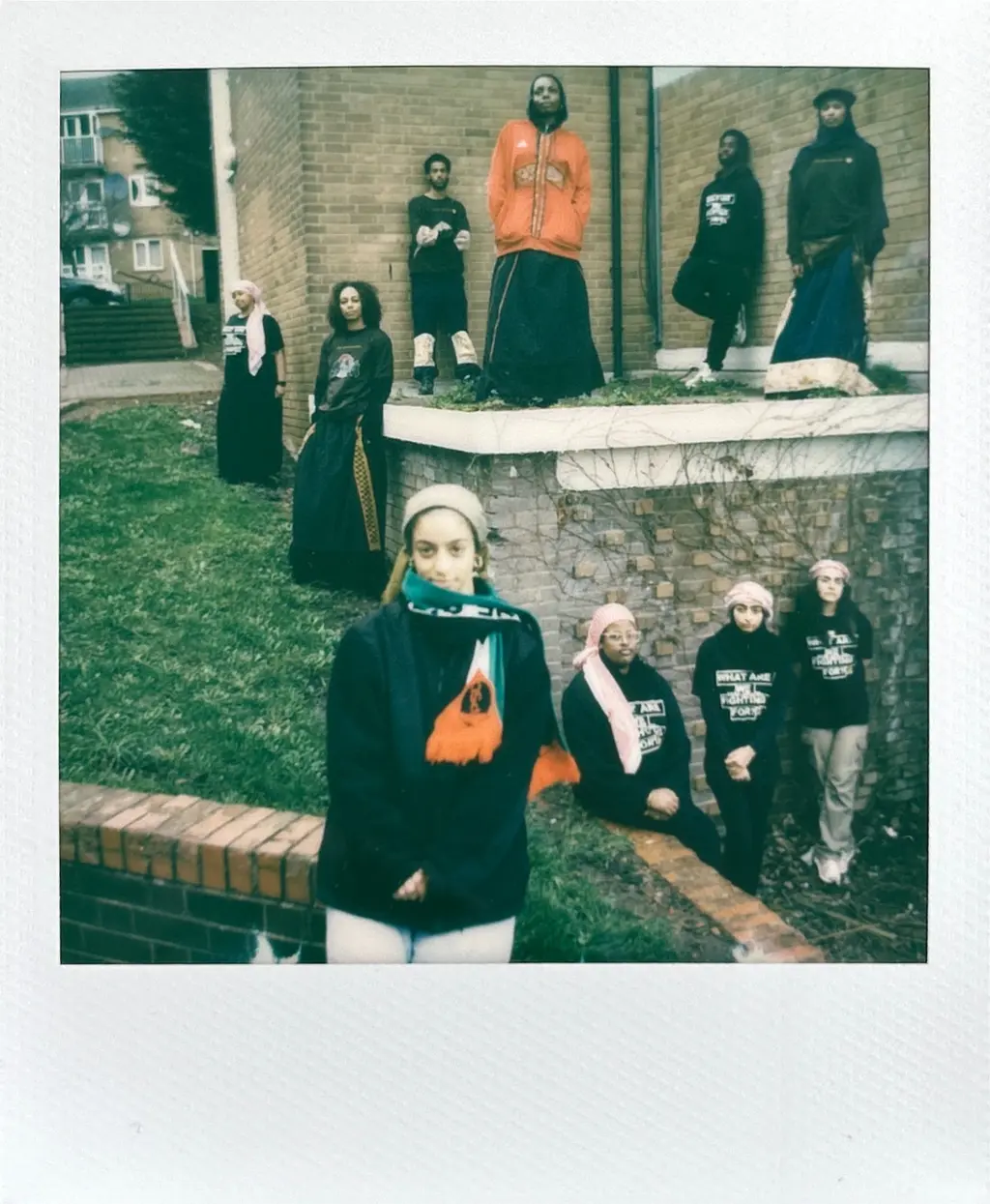
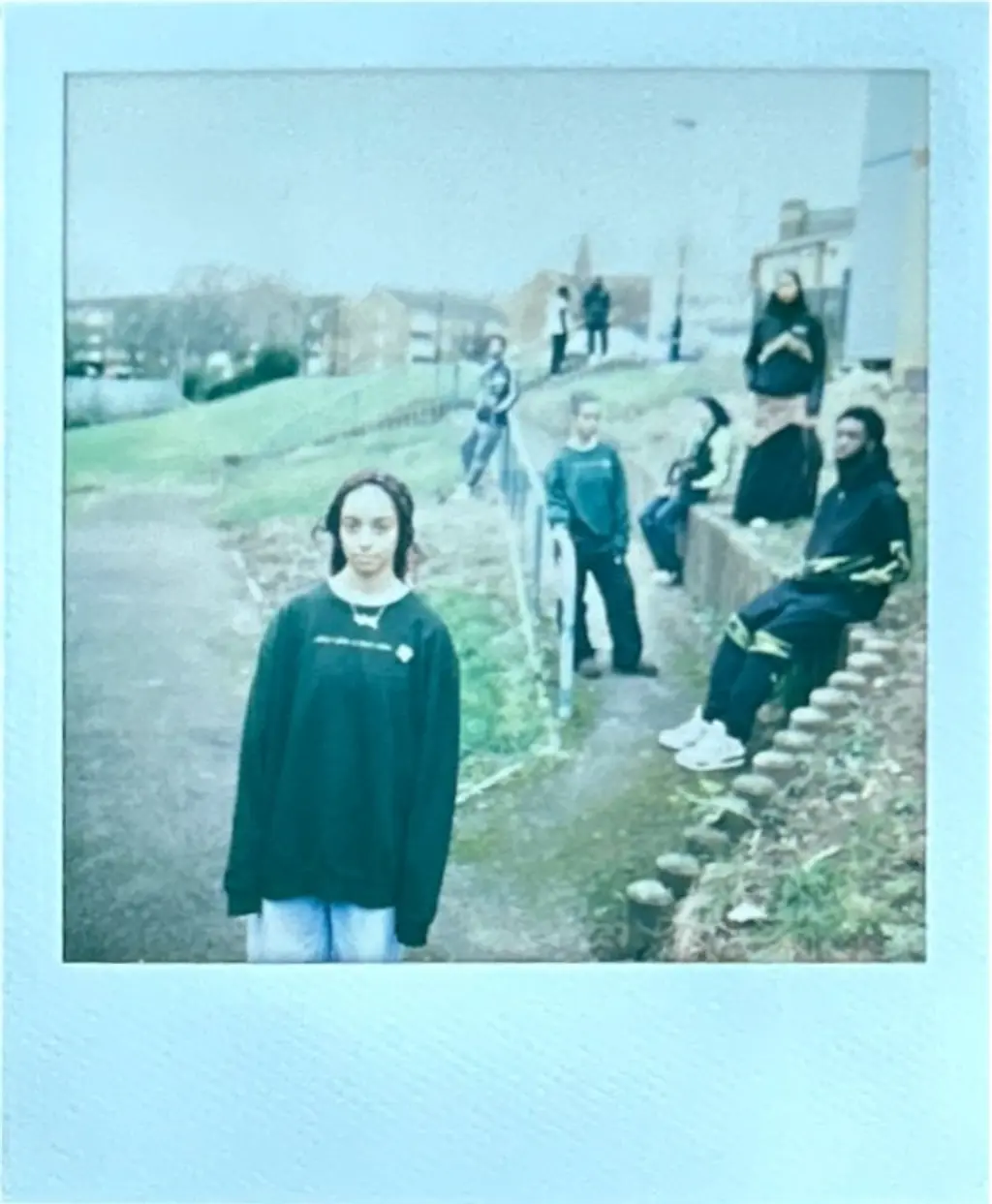
Kazna was born in Fazakerley, North Liverpool, in 1997. It’s an area she describes as “kind of racist … We were, like, the only brown people for a 10-mile radius. It’s like they’d never seen immigrants before, so it could feel very intense,” she says. Every summer holiday, her parents would send her to Sheffield to stay with her grandmother and extended family. At the age of 12, the Askers moved to Steel City for good.“Sheffield has always looked after me. It’s like one big family,” Kazna says, as her sister smiling and nodding in agreement. “Sheffield can be quite segregated: all the students live in one area, the British people live in another area, and then all the minorities in one area. So we’ve always looked after one another.”
Sheffield is home to one of the biggest Yemeni communities in the UK. With labour shortages after WW2, Yemeni workers and their families came to the UK, often to work in the steel industry, as Kazna’s grandparents did. When Margaret Thatcher became prime minister in 1979, she sought to privatise the industry. By 1981, total employment in UK steel almost halved from 156,000 to 88,200. By 1990, it was around 55,000.
Yet, as civil war ravaged Yemen in 1994, many more Yemenis settled in the UK and, with existing communities already in Sheffield, South Shields, Liverpool and Hull, the diaspora grew. As we leave the cafe and pile into a taxi, heading to a youth club where Kazna’s designs – some old, some new – will be photographed on a group of her friends, she points out the window: “That’s a Yemeni restaurant that everyone goes to.” We drive down a road with various shops lining either side. “That’s my cousin’s shop,” she says. “Oh, and that’s my cousin!”
In September last year, Kazna was announced as one of the recipients of the British Fashion Council’s Newgen award – an initiative that, since 1993, financially supports emerging designers, as well as providing a show space and mentoring by industry insiders. Past alumni include Simone Rocha, Grace Wales Bonner and Alexander McQueen. In that same month she presented Fight For Me, Sheffield at London Fashion Week. In it, interviews with local Sheffield heroes – shopkeepers, school teachers, Labour MPs and Green Party councillors – form a grainy, documentary-style collage in which Kazna moves around the city, meeting people she says “paved the way for me.”
“[My work is] not about me,” she says. “Sometimes I really regret naming my brand after my name. There are so many people in my community who made so many selfless decisions, but they never get their credit. I dedicated [that film] to the people who got me here in the first place.”
At 19, before she started at Central Saint Martins, Kazna worked at a textiles archive studying Middle Eastern and African fabrics. One day a week she’d volunteered for Makers Unite, an Amsterdam-based company that provides immigrants and refugees with tools for employment. There, she unpicked life jackets, cutting them up for refugees to sew into bags which could then be sold to fund social inclusion projects.
“I think that inspired my purpose,” she says. “I feel like that was the first time I saw fashion being used to create a whole circular community project. It involved the community in every single aspect. You know sometimes, in high fashion, it doesn’t really involve the community in every single stage? It’s just in the marketing stage. Well, not here.”
At the youth club, Kazna’s friends rifle through the suitcases, trying on tracksuits with panels in a traditional Islamic print on the side of arms and legs. In one corner, two lads are asking Simon about his camera, and his work documenting the grime scene.
Among the tracksuits is an Umbro football shirt with “Palestine” written across it. Taken from her upcoming London Fashion Week, collection her latest designs are a message of support and solidarity. But also, as is always the case with Kazna’s work, education.
“With everything happening in the world right now, the situation is super close to [the Yemeni and Muslim communities],” Kazna says. So far, she’s teased the show with a slide of personal family photos, as well as the interior of a post office and the exterior of a mosque. “It’s hard to be inspired by fashion. How do people go on with their lives when you see everything on social media, and then the next post will be a designer jacket?”
“I get it, we’re in a real ‘self-care’ era, where we’re prioritising our mental health and our boundaries. But I think it’s so important to help our neighbour, the people next to us. Even if I’m doing fashion design, if I can empower people through that, then that’s my responsibility.”
Just like Kazna’s agenda-setting MA collection, which brought a message of love and solidarity with her Muslim brothers and sisters who walked down the runway, her latest collection comes with an urgent purpose.
“I feel like we all have a responsibility to look after each other,” Kazna Asker says. “Let’s come together and figure out what we’re fighting for.”







